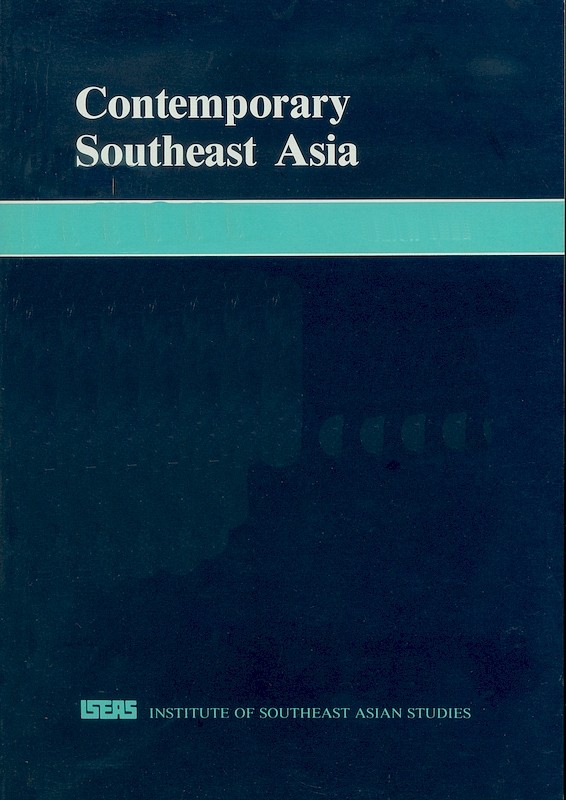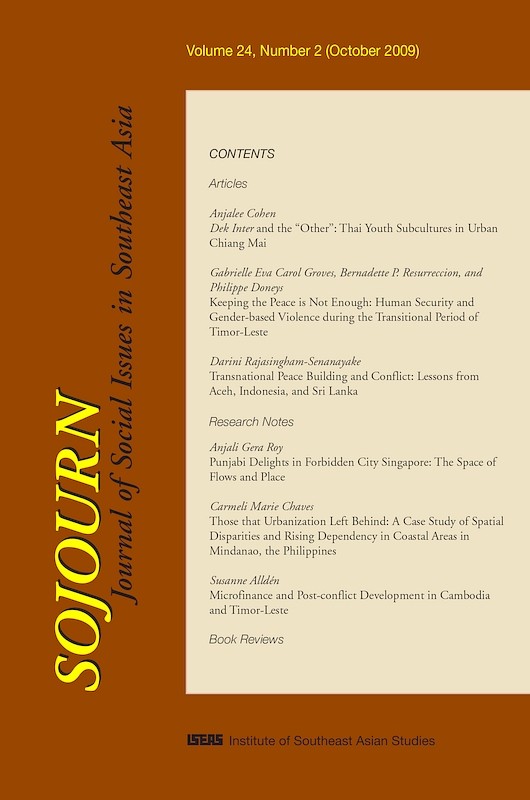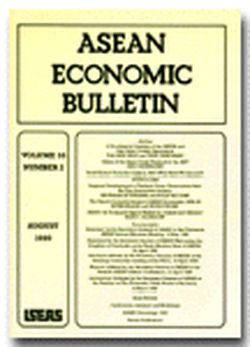ASEAN Economic Bulletin Vol. 9/1 (Jul 1992). Special Focus on "Population Dynamics and Economic Transition: Asia-Pacific towards the Year 2000".

Date of publication:
July 1992
Number of pages:
132
Code:
AE9/1
Contents
-
Preliminary pages with Introduction, by Subbiah Gunasekaran, Joseph L H Tan, authors
- ARTICLES
-
The Dynamics of Population Ageing Into the Twenty-First Century: ASEAN and Selected Countries of Pacific Asia, by Warwick Neville, author see abstractThe countries of East and Southeast Asia are being subjected to the same broad processes of population ageing as are occurring in many other parts of the world. Among the 10 countries discussed in this article, there is a wide range of experience in the process of ageing from the advanced stage reached by Japan to the incipient stage evident in the Philippines. Although the direction of age structural shift in these countries is consistent throughout, earlier patterns of fertility, mortality and migration dictate differing effects over the 50-year-period, 1970-2020. This is apparent in the behaviour and changing relationships of cohorts passing through the various stages of the life course. The ultimate phase of the current ageing cycle results in a greatly expanded elderly component which, if the case of Japan provides a precedent, is likely to be further inflated by concurrent increases in life expectancy among the elderly themselves.
-
The Emergence of Extended Metropolitan Regions in ASEAN: Towards the Year 2000, by Terry McGee, Charles Greenberg, authors see abstractThis article analyses the growth of large Extended Metropolitan Regions in the Association of South East Asian Nations (ASEAN) in the period since 1960. The analysis reveals two trends. First, urbanization levels in ASEAN countries are rapidly increasing. By the year 2000, almost 40 per cent of the population will be urban residents. Second, these accelerating processes are creating giant urban regions, called Extended Metropolitan Regions. Analysis of demographic patterns of the emergence of the major urban regions of ASEAN Bangkok, Kuala Lumpur, the Singapore-centred Growth Triangle, Jakarta and Manila reveal that these are major areas of economic growth, with industrialization, building development and leisure activities fueling this process. However, this rapid growth is causing major problems of urban infrastructure provision, land use conflict and environmental deterioration. The conclusion suggests various policy implications for ASEAN governments to cope with their increasingly urban future.
-
Role of Technology in the Emergence of Newly Industrializing Countries, by Hans Duller, author see abstractThis article traces the slow and tortuous path economists picked through theoretical thickets in order to clarify the role of knowledge, as embodied in technology, in the process of economic development. The machine in our time has become the symbol of economic might, but it took a long time to unravel the symbolism, let alone, through cogent effort, translate the findings into viable development strategy. This is followed by an assessment of some Asian countries attempts to generate, duplicate, or integrate, the knowledge and the artifacts of this engine of growth.
-
Population Change and Economic Development in Indonesia, by Aris Ananta, Udi H Pungut, authors see abstractBased on the empirical analysis of an Indonesian case study, this article poses a challenge to Oshima's generalizations concerning the pattern of demographic and economic transition. In addition, it demonstrates that Indonesia has been able to attain a stage of demographic transition with only a lower level of economic development than that experienced by present-day developed countries during their transition to low fertility and mortality regimes. Hence, this faster demographic transition can be fruitfully exploited to stimulate even more rapid economic progress in Indonesia. The likely impact of demographic changes on the future of the Indonesian economy is also examined.
-
Labour Migration and Policy Formation in a Newly Industrialized Country: A Case Study of Illegal Thai Workers in Singapore, by Gerard Sullivan, Subbiah Gunasekaran, Sununta Siengthai, authors see abstractTowards the end of 1988, the Singapore Government began to express concern about over-reliance of the economy on foreign workers and later about the presence of large numbers of illegal workers. This article examines the policies and legislation introduced to change these situations, and examines in detail the repatriation of 10,000 unauthorized Thai immigrants. In addition to economic policy and practice, the social and political aspects of migration and labour utilization are considered, as are the implications for international relations.
- DOCUMENTATION
-
DOCUMENTATION: Note by the Secretariat at the UNESCAP/UNPF Pre-Conference Seminar on Migration and Urbanization: Inter-realtionships with Socio-economic Development and Evolving Policy Issues. Seoul, 21-25 January 1992 Note by the Secretariat on Urbanization Patterns and Problems into the Twenty-First Century in Asia and the Pacific
-
DOCUMENTATION: Address by His Excellency President Soeharto of the Republic of Indonesia at the United Nations Conference on Environment and Development, Rio de Janeiro, 12 June 1992
-
DOCUMENTATION: Statement by His Excellency Prime Minister Dr Mahathir Mohamad of Malaysia at the United Nations Conference on Environment and Development, Rio de Janeiro, 13 June 1992
-
DOCUMENTATION: Statement by His Excellency Dr Ahmad Mattar, Minister for the Environment, Singapore at the United Nations Conference on Environment and Developement, Rio de Janeiro, 11 June 1992
-
DOCUMENTATION: Plenary Statement by Professor Dr Her Royal Highness Princess Chulabhorn Mahidol, Personal Representative of His Majesty the King of Thailand and Head of Delegation of Thailand at the United Nations Conference on Environment and Development, Rio de Janeiro, 5 June 1992
- BOOK REVIEW
-
BOOK REVIEW: Technological Challenge in the Asia-Pacific Economy, edited by Hadi Soesastro and Mari Pangestu, by Robert L Curry, Jr., author
-
BOOK REVIEW: Towards Full Employment Strategy For Accelerated Economic Growth, edited by I Getubig and H T Oshima, by Dieter Stumpp, author
-
BOOK REVIEW: Energy Systems and the Environment: Approaches to Impact Assessment in Asian Developing Countries, edited by Peter Hills and K V Ramani, by Ralph D Wahnschafft, author
-
BOOK REVIEW: The Malaysian Economy: Spatial Perspectives, by George Cho, by Warwick Neville, author
-
Conferences, Workshops and Seminars
-
ASEAN Chronology 1992
-
Some Recent Publications



